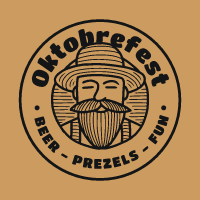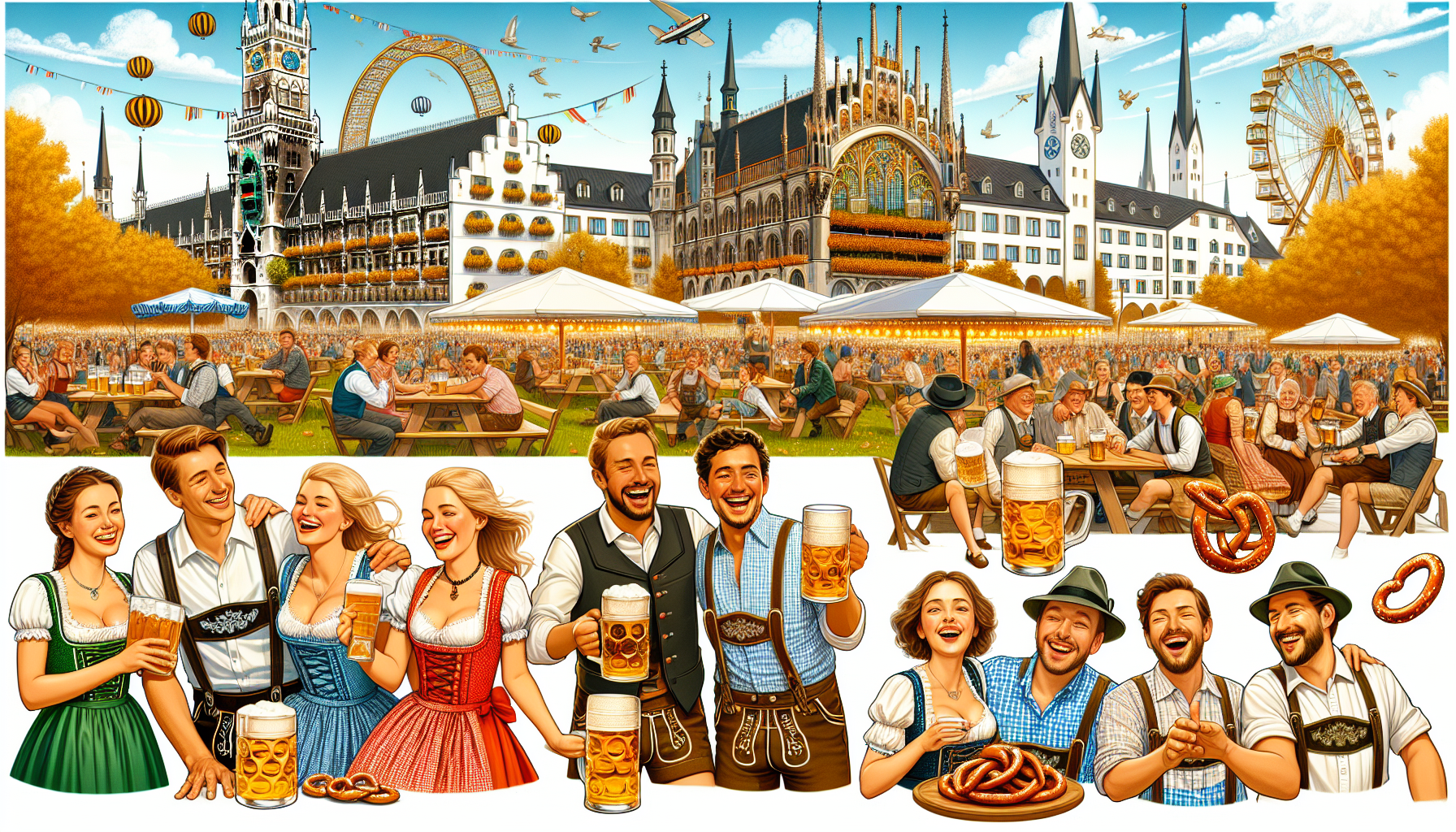The Birth of Oktoberfest: A Royal Celebration
Oh, my dear friends, gather ’round! Let me take you on a delightful journey back to the origins of our beloved Oktoberfest. Picture this: Munich, on October 12, 1810. The air was filled with excitement and joy as Crown Prince Ludwig—the man who would later become King Ludwig I—was about to marry the enchanting Princess Therese von Sachsen-Hildburghausen. To celebrate this joyous union, the people of Munich organized a grand festivity, which included a thrilling horse race!
The meadow where this race took place was later christened Theresienwiese in honor of our dear princess. This cheerful event was so spectacular that the folks couldn’t help but want to do it all over again the next year. And so, with the Bavarian Agricultural Association stepping in to organize it, a tradition was born!
From Humble Beginnings to the World’s Largest Folk Festival
Oh, how our little celebration has grown! Let me tell you, by the time the late 20th century rolled around, Oktoberfest had evolved into the world’s most magnificent folk festival. The heart and soul of the event? None other than our precious beer halls, along with joyous amusement rides, mouth-watering German delicacies, and, of course, the enchanting sounds of traditional German music.
Every year, the festival now stretches over two glorious weeks, wrapping up on the first Sunday in October. More than six million fun-loving souls flock to Munich to partake in the festivities. Each of our cherished Munich brewers constructs their own splendid, temporary beer halls, turning the Theresienwiese into a vibrant village of joyous celebration.
The Grand Opening: Tapping the First Keg
Ah, there’s nothing quite like the grand opening of Oktoberfest! Picture the scene: the mayor of Munich, standing proudly with a wooden mallet in hand, taps the very first keg to officially kick off the festivities. This traditional act sparks a cascade of parades, games, and endless entertainment, bringing smiles and laughter to all who attend.
Despite the festival’s immense growth, the atmosphere in the beer tents remains delightfully traditional. Here, every guest is treated like royalty, and the warmth and camaraderie amongst friends (both old and new) fill the air.
The “Quiet Oktoberfest” Initiative
Now, let me share with you a particularly charming aspect of our beloved festival. In 2005, the “quiet Oktoberfest” concept was introduced with the goal of making the event even more family-friendly. Until 6:00 PM, the beer tents play delightful quiet music, such as traditional wind music, creating a serene and wholesome atmosphere perfect for families.
Only after the sun sets does the music transition to lively Schlager and pop tunes, ensuring that everyone—from the youngest child to the merriest reveler—can enjoy the festival’s magic. This thoughtful change has significantly reduced violence and helped maintain the authentic, heartfelt nature of our Oktoberfest.
Enduring Through Challenges: The Resilience of Oktoberfest
Even the most joyous celebrations face challenges, and Oktoberfest is no exception. Throughout its long and storied history, Oktoberfest has been canceled only 26 times. These cancellations occurred during tumultuous periods such as the Napoleonic wars, cholera epidemics, both world wars, and most recently, the COVID-19 pandemic. Yet, despite these interruptions, the spirit of Oktoberfest remains unbroken.
Today, the magic of Oktoberfest is felt far and wide, as communities around the globe host their own inspired versions of the celebration. No matter where you are, you can find a piece of Bavaria and join in the merriment that has captivated hearts for generations.
A Beloved Cultural Institution
From its charming beginnings as a horse race to its current status as the world’s largest folk festival, Oktoberfest has undergone an extraordinary transformation. Yet, at its core, the festival still holds true to its traditional roots, offering a warm embrace of Bavarian culture, complete with dirndls, oompah music, and steins of frothy beer.
So, my friends, whether you’re savoring a pretzel, dancing to a lively polka, or raising a glass in joyous celebration, know that you are partaking in a tradition that spans centuries and connects us all in a shared love of life, laughter, and camaraderie.
**[Read more about the history of Oktoberfest here](https://www.oktoberfestbeerfestivals.com/history-of-oktoberfest/)**
Let’s Raise a Stein to Oktoberfest!
So, next time you find yourself at Oktoberfest, whether in Munich or in your hometown, take a moment to appreciate the rich history and traditions that have made it the extraordinary event it is today. Prost to many more years of celebrating together!


Leave a Reply